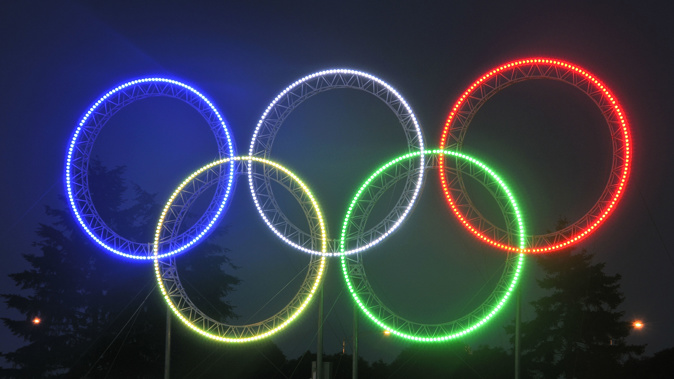
In 2013, when they were awarded the right to stage the 2020 Summer Olympics, Tokyo officials said they could stage the Games for 829 billion yen, or $7.3 billion at the current exchange rate of 113 yen to the dollar. It was a comparatively thrifty plan, at least compared with other Olympics.
It was also a work of wildly optimistic fiction - as such initial figures always are when the Games are concerned.
By 2016, an expert panel set up by Tokyo's newly elected governor was predicting that the price tag of the 2020 Olympics could exceed $30 billion, a staggering sum exceeded only by the spending for the 2008 Beijing Summer Games ($45 billion) and the 2014 Sochi Winter Olympics ($51 billion) and a worrying sum to the International Olympic Committee, which has struggled to find willing bidders to host the Games in recent years because they've become such a financial boondoggle.
Since that 2016 estimate, the IOC has adopted what it's calling "the New Norm," a series of reforms designed to reduce the cost of staging the Olympics. But that plan won't go into full effect until the 2024 Paris Olympics, meaning Tokyo organizers have to handle cost overruns mostly by themselves. It seems they are struggling: According to a report released this week by the national government's Board of Audit and reviewed by the Associated Press, Japan is likely to spend at least $25 billion and possibly more to stage the 2020 Games. That figure is nearly four times the original 2013 estimate and more than double the number that was thrown out just 10 months ago, when the Tokyo organizing committee said the Olympic budget was about $12 billion.
About a month after that December $12 billion estimate, Tokyo Governor Yuriko Koike said the city needed to spend an additional $7.2 billion "for projects directly and indirectly related to the games," including building barrier-free facilities for Paralympic athletes, training programs for volunteers, and advertising and tourism plans. Then, this week, the Board of Audit report found that the national government's share of spending had increased to $7.1 billion from the $1.3 billion estimated back in December. Add it all up and it's about $25 billion. Plus, "a large amount of spending was expected to continue after 2018 leading up to the event," the report noted, possibly pushing the costs even higher.
Tokyo 2020 organizers are disputing the numbers, the AP notes, with a spokeswoman saying costs involved with "inbound tourism, road constructions, subsidy for creating a hydrogen society, and even improving accuracy of weather forecasts with better satellites" should not be considered Olympic expenses. But would the government be spending that money if the Olympics were not coming to Tokyo in 2020?
Japanese taxpayers will foot 80 percent of the final bill, the audit found.
The IOC's attempts to tamp down host spending on the Olympics came about for two reasons, both of them embarrassing. For one, cities have become increasingly reluctant to bid on the Games, with Oslo dropping out of the running for the 2022 Winter Games after being selected as a finalist by the IOC, leaving it to choose between Beijing and Almaty, Kazakhstan - two less-than-ideal hosts. For another, buildings constructed for the Games have increasingly become expensive white elephants. The local government in PyeongChang, South Korea, site of this year's Winter Games, has complained about spending millions on upkeep for Olympic buildings that no one is using, and athletic buildings in Rio, site of the 2016 Summer Olympics, have been left to rot in the wake of Brazil's economic troubles.
In response, the IOC unveiled the "New Norm," which aims to help Olympic host cities get a better return on investment by, in part, paring back the costs involved with bidding on the Games and requiring host cities to have a concrete plan to utilize their Olympic infrastructure after the Games end. In announcing the plan in February, the IOC said the reforms already had saved Tokyo organizers $2.2 billion, an apparent drop in the bucket when the final bill comes due.
"The Games overrun with 100 per cent consistency," University of Oxford researchers wrote in a 2012 study. "No other type of megaproject is this consistent regarding cost overrun. Other project types are typically on budget from time to time, but not the Olympics."
Take your Radio, Podcasts and Music with you









